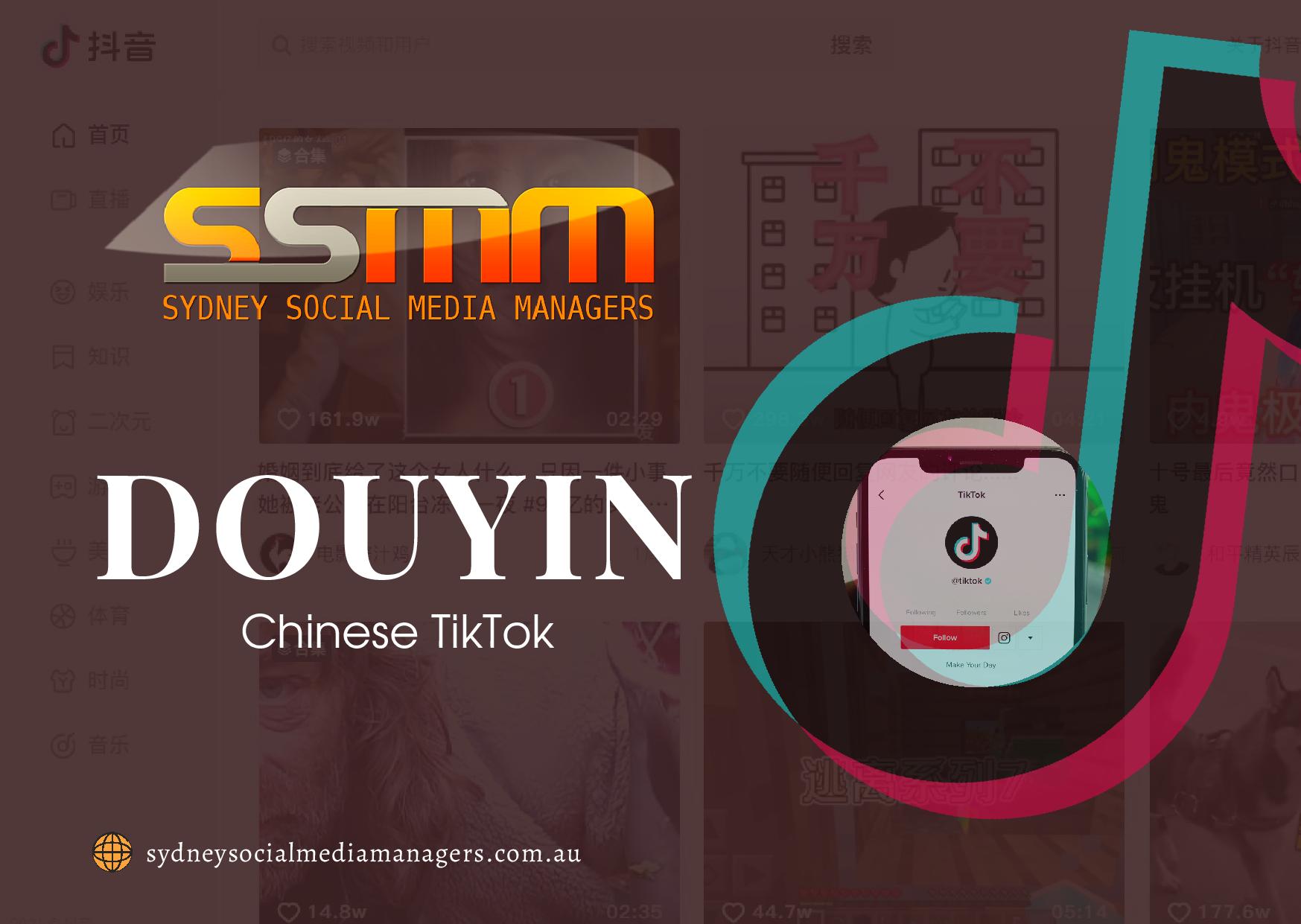
Chinese social media is expanding globally at a voracious rate. The virtual arm of a very dynamic modern culture (Chinese engineering creating architectural marvels year-on-year), there have been numerous advancements and platform innovations seen in just a handful of years. And now China’s TikTok has invaded Western nations with greater virality than even Covid-19.
If you want to get a handle on Chinese social media, we can definitely get you going as we have Chinese team members and associates on-board creating client opportunities and promotions daily. China’s internet industry is indeed very responsive – and for many Australian companies it’s crucial to maintain brisk Chinese social media expansion – join us in observing how Chinese consumers use, connect and network infinite growth to achieve marketing developments beyond client expectations.
China’s superpower status is a vital drawcard when it comes to power and influence. However what your average Australian or American business owner wants is the market. For some it’s enough to seduce the Chinese population just in Sydney, or in Adelaide, or even in Cairns (well that’s getting a bit small – let’s set our sights a little higher). And even though China does not allow global sites such as Facebook, Instagram, and Twitter to be accessed on their mainland (even thought this scribe spent many days in Zhuhai talking online to Facebook minions about all the bugs in the their Facebook business advertising system) that recognise the need for equivalent platforms. This is to give way to the times and a nod towards digital technological evolution. Therefore, giving birth to their very own locally-made-yet-now-global structured social media channels.
What does this all mean? As it stands, China stands to to gain far more using this strategy of regionalism and sheer numbers as a definite advantage upping their China-owned social media presence. To tap the Chinese social media market, you inevitably must adhere to and communicate using their tools on their platforms.

is a microblogging site the equivalent of Twitter. “Weibo” a literal translation, was introduced in 2009 and adopted the use of images and videos earlier than its western counterpart. Sina Weibo is Chinas go-to platform and is wide using businesses big or small to interact with consumers. This is where they share new events, build on new product launches and generally be present and visible to consumers.
Famous people, stars, and celebrities use Sina Weibo to communicate with their fans. It is not only Chinese stars but also personalities outside of China who recognise the needs base on their Chinese followers. Even multinational corporations appreciate the need to be present and involved in Chinese Social Media.
Qzone is a combination of Tagged, Facebook, and WordPress. Launched in 2005, it is a favorite among teenagers specifically because one can customise their profile. Users can put up blogs and diaries or listen and watch music videos.
Despite paying a fee for more access to the service, Qzone has outperformed Facebook and MySpace in this region. Catering to Chinese youth, it would be no surprise that trendy, flashy multinational brands have done well on this platform.

is an instant messaging app introduced in 2011? Because it was free, quietly versatile, this micro-messaging app became the largest of its kind. WeChat features include text and group messaging, video chat, and location-based sharing.
It also has an e-wallet capability to pay bills where applicable with the WeChat payment option. A recent version for business and companies communication has launched in April 2016 called Enterprise WeChat.
is a platform developed by College students much like Facebook and features networking, video hosting, and recently mobile gaming. It is called the Facebook of China. But Facebook has managed to reach global proportions, Renren has failed to capitalize on its opportunities and deviated from its original purpose.

Douyin is a Chinese TikTok in China. A unique algorithm and an endless supply of content. That has led to it being the fastest-growing short video platform since its release in 2016. There are millions of content creators from a wide range that has cultivated millions of loyal followers.
The brands began hosting live streams for sharing their products. It comes to creating unique, visual content around the product or service. The essential platform for advertising leads to reaching specialised marketing and advertising strategies. After all, the result is extremely impactful and with high growth rates and strong sales numbers.
Youku was previously the top video-sharing app in China. For many years it was called the Chinese Youtube, which you can see from the name seems to be exactly where going. However, in the last year, Youku has started to fall behind its rivals and leave it in the top 10 for now, as it does still have brand recognition as one of the most popular video-sharing platforms in China and as the “Chinese Youtube”.
It offers an online viewing analytics tool. Enables brand to identify their audience by providing users’ information such as demographics, location, browsing technology, and language and paid advertisements such as banner ads including (static and animated), text links, buttons, in-stream advertisements, branded viral videos, and pause ads. Youku is not the right channel for everyone, still an effective tool for social media marketing in China.

Is the Chinese LinkedIn and social networking platform. It was founded in 2013 by Fan Lin with its headquarters in Beijing. Maimai achieved unicorn status (a valuation of over 1 billion dollars) in 2018 and was planning to IPO in the United States in 2019.
The platform claimed to have a registered user base of 30 million in November 2017 & a monthly active user base of 10 million. This platform is huge potential for social media marketing in China. Odds if your business has had success using Linkedin for marketing and could offer similar results. By using this social media platform, you can find potential Chinese employees as well as customers for your business. This platform is very useful for those who sell services rather than products. While it’s still growing and doesn’t have the global publicity of other social media platforms, we anticipate this will be a great tool for social media marketing in China going forward.
@grandma_droniakIf you dont like my @chnge shirt, you can leave! ##womendontoweyou ##shooshoo ##grandma ##chngepartner? original sound – grandma_droniak
And finally we come to the all-consuming all-engaging Chinese social media platform that is TikTok. Despite Trump temporarily succeeding in banning this Chinese Communist Party (CCP-controlled) platform, President Biden revoked Trump’s mandate in June 2021 which is basically also going to allow many more Chinese-owned apps through into both the American and Western world markets.
What’s making TikTok really big, however, is the celebrity-manufacturing aspect of it. People who have been completely unknown on mainstream media (MSM) are able to manouvre themselves into massive celebrity very quickly.
Here’s some examples:
The Inspired Unemployed https://www.tiktok.com/@theinspiredunemployed
Two Aussie boys are attracting a massive following. Aussie Aussie Aussie oi oi oi!
Grandma Droniak https://www.tiktok.com/@grandma_droniak
Wow 3 million followers! So wonderful. 91 years old and a superstar!
Our Filipino Grandma https://www.tiktok.com/@ourfilipinograndma
Clearly the TikTok dream is to instantly create a viral superannuation for yourself by letting it all hang out on TikTok. The Chinese are helping our old people more than we are! We stick them in an old folks home where they’re gonna catch Covid-19, while the Chinese say “let it rip old lady”.
Chinese Influencers: Profiles featured here:
https://www.facebook.com/NingLove0976/
https://www.instagram.com/livia_travel/
I hope this helped you to understand how each of these Chinese social media sites works and what differentiates them from one another and if you are interested in any China marketing services, you can talk to our social media experts directly at 1300 321 814.